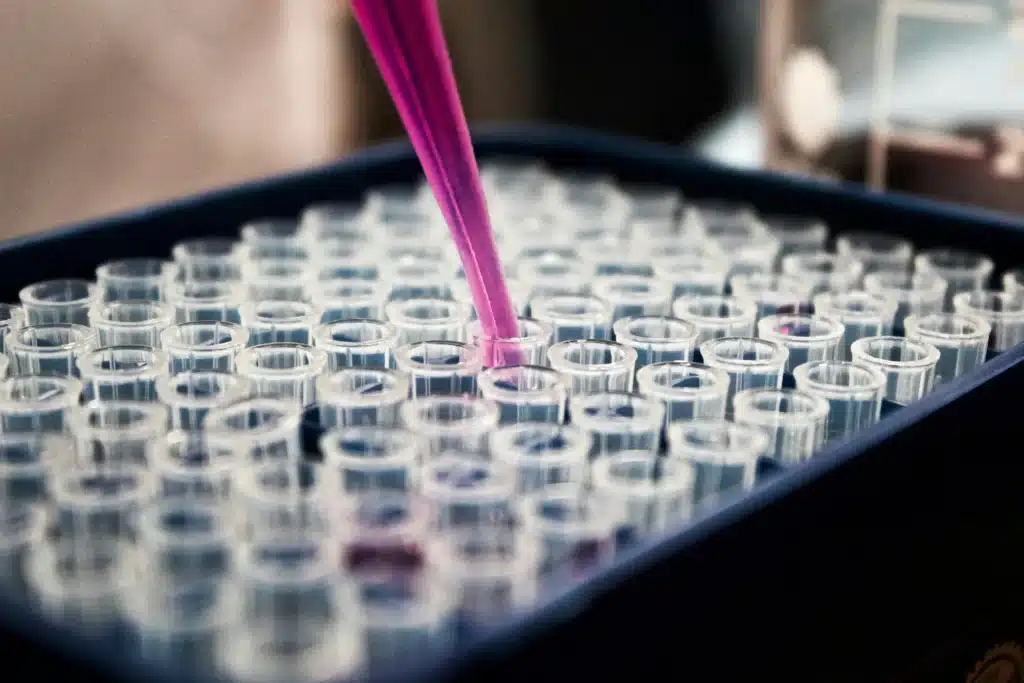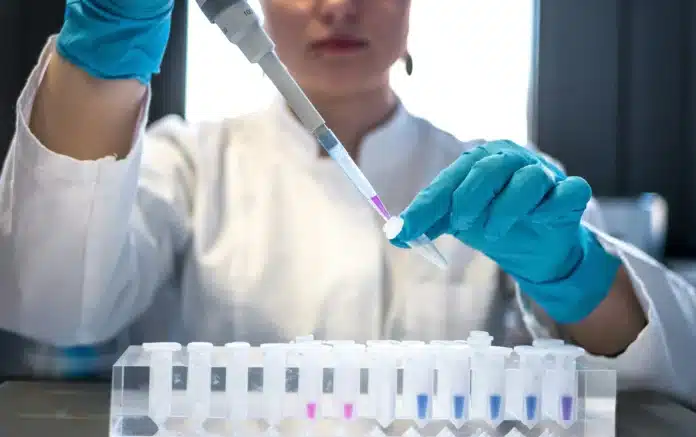What is Medical Biology?
Medical biology is a specialized field that merges the principles of biology with medical science to understand, diagnose, and treat diseases. It encompasses a broad range of topics including genetics, cellular biology, and molecular biology, all of which play critical roles in understanding the mechanisms behind various health conditions.
Why Medical Biology Matters
Medical biology is pivotal in transforming scientific discoveries into tangible health benefits. Its applications are vast and directly impact everyday healthcare in several ways:
- Disease Diagnosis and Prevention:Advances in medical biology have led to the development of sophisticated diagnostic tools, such as genetic tests and biomarkers, which help in early detection and accurate diagnosis of diseases. These tools enable healthcare providers to identify conditions before symptoms even arise, significantly improving the chances of successful treatment.
- Personalized Medicine: By understanding the genetic and molecular basis of diseases, medical biology allows for the customization of treatments to fit individual patients’ needs. Personalized medicine aims to optimize therapeutic outcomes by tailoring interventions based on a patient’s unique genetic profile, lifestyle, and other factors.
- Innovative Therapies: Medical biology has been instrumental in developing new and effective therapies. For example, breakthroughs in gene therapy and targeted treatments have revolutionized the management of previously hard-to-treat conditions, offering hope and improved quality of life for many patients.
- Preventive Health Measures: Research in medical biology contributes to preventive healthcare strategies by identifying risk factors and developing vaccines and other preventive measures. This proactive approach helps in reducing the incidence of diseases and promoting overall health and well-being.
Medical Biology Topics
Medical biology is a broad field with numerous specialized topics. Here are some key areas you might explore:
Genetics and Genomics
- Genetic Disorders: Inherited diseases such as cystic fibrosis, sickle cell anemia, and Huntington’s disease.
- Genetic Testing and Screening: Techniques and applications in diagnosing genetic conditions and predispositions.
- Genomic Medicine: Personalized medicine based on an individual’s genetic makeup.
- Epigenetics: How gene expression is regulated by external factors and environmental influences.
Cell Biology
- Cell Signaling: Mechanisms by which cells communicate and respond to their environment.
- Cancer Biology: Understanding how cancer cells grow, spread, and how they can be targeted for treatment.
- Stem Cells: Properties and potential applications of stem cells in regenerative medicine and therapy.
- Cell Cycle and Apoptosis: Regulation of cell division and programmed cell death, and their implications for disease.
Molecular Biology
- DNA Replication and Repair: Processes involved in maintaining genetic integrity and their implications for disease.
- RNA Biology: Roles of different RNA types (mRNA, tRNA, rRNA) in protein synthesis and gene regulation.
- Protein Synthesis and Function: How proteins are made and their roles in health and disease.
- Genetic Engineering: Techniques such as CRISPR/Cas9 for modifying genes.
Immunology
- Immune System Function: How the immune system protects the body from pathogens and how it can malfunction in autoimmune diseases.
- Vaccines and Immunotherapies: Development and impact of vaccines and therapies that harness the immune system to fight diseases.
- Cancer Immunology: How the immune system interacts with cancer and advances in immunotherapy.
Microbiology
- Pathogen Biology: Study of bacteria, viruses, fungi, and parasites and their interactions with hosts.
- Antibiotic Resistance: Mechanisms of resistance and strategies to combat resistant pathogens.
- Microbiome: Role of the human microbiome in health and disease.
Pharmacology and Drug Development
- Drug Discovery: Methods for identifying and developing new drugs.
- Pharmacogenomics: How genetic variations affect individual responses to medications.
- Clinical Trials: Design and execution of trials to test new treatments and therapies.
Biotechnology
- Biopharmaceuticals: Development and application of biologic drugs, including monoclonal antibodies and vaccines.
- Gene Therapy: Techniques for correcting or replacing defective genes to treat diseases.
- Biomarkers: Use of biological markers for diagnosing and monitoring diseases.
Clinical and Translational Medicine
- Translational Research: Bridging the gap between laboratory research and clinical applications.
- Precision Medicine: Tailoring medical treatment to the individual characteristics of each patient.
- Clinical Genetics: Application of genetic knowledge in clinical settings for diagnosis and treatment.
Bioinformatics
- Data Analysis and Visualization: Techniques for interpreting large biological datasets.
- Computational Biology: Use of algorithms and models to understand biological processes and systems.
- Systems Biology: Integrative approach to understanding complex interactions within biological systems.
These topics represent just a fraction of the vast field of medical biology. Each area has its own depth and breadth, offering rich opportunities for exploration and research.
Medical Biology Jobs

A career in medical biology offers a wide range of opportunities across various sectors, including research, healthcare, and biotechnology. Here’s an overview of some key job roles in the field:
1. Research Scientist
- Role: Conduct experiments and research to understand diseases, develop new treatments, and advance medical knowledge.
- Settings: Academic institutions, research laboratories, pharmaceutical companies, and government agencies.
2. Clinical Research Coordinator
- Role: Manage and oversee clinical trials, ensuring that research studies comply with regulatory requirements and are conducted properly.
- Settings: Hospitals, clinical research organizations, and academic medical centers.
3. Genetic Counselor
- Role: Provide guidance to patients and families about genetic conditions, interpret genetic tests, and support decision-making related to genetic issues.
- Settings: Hospitals, genetics clinics, and private practice.
4. Biotechnologist
- Role: Apply biological processes to develop new products and technologies, such as drugs, vaccines, and diagnostic tools.
- Settings: Biotech companies, pharmaceutical firms, and research institutions.
5. Molecular Biologist
- Role: Study molecular processes within cells, including gene expression and regulation, to understand diseases and develop new treatments.
- Settings: Research labs, pharmaceutical companies, and academic institutions.
6. Bioinformatics Specialist
- Role: Analyze biological data using computational tools and algorithms, often focusing on genomics and proteomics.
- Settings: Research institutions, biotech companies, and healthcare organizations.
7. Pharmaceutical Scientist
- Role: Conduct research to develop and test new drugs, studying their effects, safety, and efficacy.
- Settings: Pharmaceutical companies, research labs, and regulatory agencies.
8. Medical Laboratory Technician
- Role: Perform tests and analyze samples to assist in diagnosing diseases and monitoring patient health.
- Settings: Hospitals, diagnostic labs, and research facilities.
9. Clinical Geneticist
- Role: Diagnose and treat genetic disorders, often working in collaboration with genetic counselors and other healthcare professionals.
- Settings: Hospitals, genetics clinics, and academic institutions.
10. Immunologist
- Role: Study the immune system and its role in diseases, developing vaccines and immunotherapies.
- Settings: Research institutions, pharmaceutical companies, and academic labs.
11. Regulatory Affairs Specialist
- Role: Ensure that medical products comply with regulations and standards, working to facilitate the approval and market entry of new therapies.
- Settings: Biotech and pharmaceutical companies, regulatory agencies.
12. Bioethicist
- Role: Address ethical issues related to medical research and biotechnology, such as consent and privacy.
- Settings: Research institutions, universities, and policy organizations.
13. Clinical Biochemist
- Role: Analyze biochemical changes in patients to diagnose diseases and monitor treatment effectiveness.
- Settings: Hospitals, diagnostic labs, and research institutions.
14. Epidemiologist
- Role: Study the distribution and determinants of diseases in populations, often working to control and prevent outbreaks.
- Settings: Public health agencies, research institutions, and healthcare organizations.
15. Science Communicator/Medical Writer
- Role: Translate complex scientific information into accessible language for various audiences, including the public and healthcare professionals.
- Settings: Medical communications agencies, media, and academic institutions.
16. Bioengineering Specialist
- Role: Apply principles of biology and engineering to develop medical devices and technologies.
- Settings: Medical device companies, research institutions, and healthcare organizations.
17. Laboratory Manager
- Role: Oversee the operations of a laboratory, including staff management, equipment maintenance, and compliance with safety regulations.
- Settings: Research labs, hospitals, and biotech companies.
18. Health Informatics Specialist
- Role: Manage and analyze health data to improve healthcare delivery and outcomes.
- Settings: Healthcare organizations, IT companies, and research institutions.
These roles often require a combination of advanced education (e.g., master’s or doctoral degrees) and relevant experience. Many positions also benefit from skills in data analysis, research methodologies, and effective communication.
Common Issues Faced in Medical Biology
- Complexity of Biological Systems
- Issue: Biological systems are incredibly complex and interconnected. Understanding how various factors interact at the molecular, cellular, and organismal levels can be challenging.
- Impact: This complexity can make it difficult to isolate variables, predict outcomes, and develop effective interventions.
- Data Management and Analysis
- Issue: Medical biology generates vast amounts of data, especially with advancements in genomics and high-throughput technologies. Managing and analyzing this data efficiently is a significant challenge.
- Impact: Large datasets require sophisticated tools and techniques for analysis, which can be resource-intensive and may lead to bottlenecks in research.
- Ethical and Privacy Concerns
- Issue: Research in medical biology often involves sensitive genetic and health data, raising concerns about privacy, consent, and potential misuse.
- Impact: Ensuring ethical practices and protecting individuals’ rights while conducting impactful research can be challenging.
- Translation from Research to Clinical Practice
- Issue: Translating discoveries from the lab into effective clinical treatments can be a lengthy and complex process, often hindered by regulatory, financial, and logistical barriers.
- Impact: Innovations may take years to reach patients, limiting the immediate benefits of research findings.
- Interdisciplinary Collaboration
- Issue: Medical biology frequently requires collaboration across multiple disciplines, including genetics, bioinformatics, and clinical medicine. Coordinating efforts and integrating knowledge can be difficult.
- Impact: Effective collaboration is crucial for advancing research and developing comprehensive solutions, but differences in terminology, methodologies, and goals can create obstacles.
- Funding and Resource Allocation
- Issue: Securing adequate funding for research can be competitive and challenging, particularly for innovative or high-risk projects.
- Impact: Limited resources can constrain the scope of research and the ability to pursue novel ideas.
Strategies for Overcoming Challenges of Medical Biology
- Utilizing Advanced Technologies
- Solution: Implementing cutting-edge technologies such as artificial intelligence, machine learning, and advanced data analytics can help manage and interpret large datasets more effectively. Tools like bioinformatics platforms and cloud computing can streamline data analysis and improve research efficiency.
- Developing Robust Ethical Guidelines
- Solution: Establishing and adhering to comprehensive ethical guidelines and privacy standards can address concerns about data security and consent. Engaging with ethics committees and ensuring transparency in research practices can build public trust and safeguard individual rights.
- Enhancing Interdisciplinary Collaboration
- Solution: Promoting interdisciplinary teamwork through collaborative projects, joint training programs, and cross-disciplinary workshops can improve integration of knowledge and foster effective communication among researchers from different fields.
- Streamlining Translation Processes
- Solution: Strengthening partnerships between academic researchers, clinicians, and industry can facilitate the translation of research into practice. Creating streamlined pathways for clinical trials and regulatory approvals can accelerate the process of bringing new treatments to market.
- Securing and Managing Funding
- Solution: Diversifying funding sources, including grants, private investment, and public-private partnerships, can provide more stability and flexibility. Developing clear and compelling research proposals can increase the likelihood of securing funding.
- Investing in Education and Training
- Solution: Providing ongoing education and professional development opportunities for researchers and clinicians can enhance skills and keep pace with technological advancements. Training programs focused on data management, ethical issues, and interdisciplinary collaboration can address many of the challenges faced in medical biology.
By addressing these challenges through strategic solutions, the field of medical biology can continue to advance and improve healthcare outcomes, ultimately benefiting patients and society as a whole.
Conclusion
Medical biology is crucial in advancing our understanding of health and disease, paving the way for innovative treatments and personalized medicine. By exploring genetic, cellular, and molecular processes, it transforms scientific discoveries into practical healthcare solutions, offering hope and improved outcomes for patients. As the field evolves, it promises to continue driving progress in medicine and enhancing our overall well-being.


